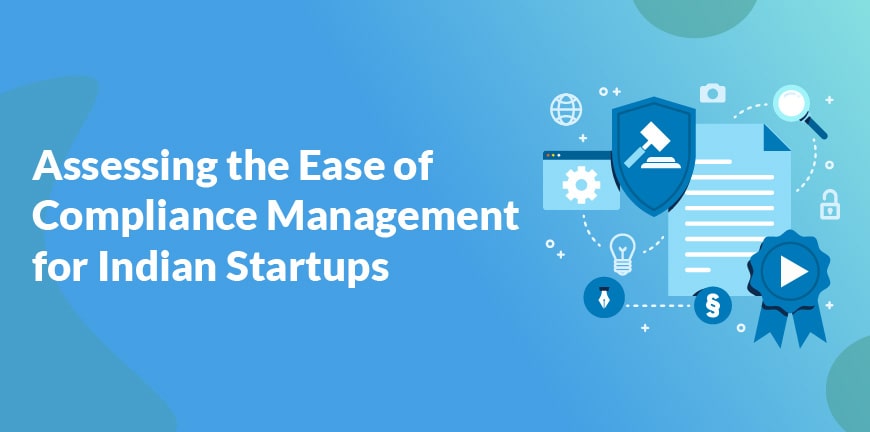
The Growing Significance of HR in Corporate Governance
22/09/2023
What is Compliance and its Necessities?
05/10/2023While people are divided on how good a large population is for the economic and social growth of the country, one thing is certain. Any startup that is established in a populous country like India, which has a population of 1.3 billion people, will have a much larger customer base to target, even if quite a few people are still below the poverty line.
And, according to the United Nations Development Program (UNDP), the number of the poor has fallen too, by 9.8% points from 24.85% in 2015 to 14.9% in 2019-21, a number that was over 55% at the time of Independence. This means more people can afford the products and services they want every year, and the situation has only improved over the last 76 years.
In fact, the growth in GDP and per capita income is so encouraging that it has prompted the Government to bring out laws as early as 2016 that encourage startups, and it has only become better now with the environment being much more congenial to startup growth or general business growth, making it easier for enterprising individuals to become entrepreneurs.
Forget the days of old when a new business had to get several approvals, certificates of fitness, and NOCs. The requirements for compliance are not too stringent today. In fact, India is today the 10th best country in the list of the top countries for ease of doing business.
Only 3 years back, India was ranked 63rd. Kudos to India, what an achievement! Let us look at the basic requirements to be classified as a startup in India. In 2016, there were 415 startups in India. In 2022, there were 84,012 startups, a growth of 200 times! India today is the 3rd largest startup ecosystem in the world.
What the Government Is Doing to Help Startups?
Here are five things that the Government is doing to ensure the success of startups.
1. Startup India
Three-year tax and compliance breaks to do away with corruption and red tape.
2. MUDRA Yojana
Through this scheme, startups can avail loans from banks to set up, manage, and stabilize their operations.
3. SETU (Self-Employment and Talent Utilization) Fund
Startups can make use of the 1000 Cr fund allocated by the government to create opportunities that will allow self-employment and profit generation, especially in the technology domain.
4. E-Biz Portal
The government integrates all 14 licenses required to do business in India on the same portal. This is a definite gift for startups, who can now apply for all 14 licenses at the same portal.
5. Royalty Tax
If you thought the already reduced royalty tax of 25% was a lot, then here is some good news. The tax has been further reduced to just 10% now.
Additional Benefits to Startups
Additionally, if the startup is recognised by DPIIT (Department for Promotion of Industry and Internal Trade), they shall be allowed to self-certify that they are compliant with the 6 mentioned Labour Laws and 3 additional Environmental Laws through a simple online procedure. Take a moment to rejoice, startups!
For labour laws, the Government has promised that no inspection will be conducted for five years. However, startups are warned against flouting any laws. Secondly, the startups are eligible for tax exemption in any three consecutive years of their first ten years, if recognised by DPIIT.
To be a DPIIT-recognised startup, startups must follow certain requirements published on the online portal.
The Sad Truth About Startups in India
Despite these great policies from the government, 123,000 startups fail in India every day, and about 70% of all startups in India fail between 2 and 5 years. These are some very big numbers. And there are reasons for such numbers.
Startups face several challenges, such as not incorporating as the right entity type (private, private limited, etc.), a lack of a great business model, a lack of a good team, and a lack of founders who are confident and stick to their vision in the long-term.
Legal Compliance for Any Startup in India
All of this, despite the massive changes the government has undertaken. Lack of compliance with legal terms in India is just one of the challenges. Let us look at some legal requirements for startups in India.
- The startup should be a private limited company or an LLP (Limited Liability Partnership)
- The turnover must be less than 100Cr in a calendar year
- An entity cannot remain a startup for more than 10 years from its date of inception
- The startup must be able to create wealth of its own
- Certification must be obtained from the Inter-Ministerial board before incorporation
- Entities formed by splitting a business or merging businesses cannot be considered a startup
- In light of new data protection laws in India this year, startups must also comply with standards for storage and upkeep of customer data. These security policies must also be uploaded on the website of the startup for easy perusal by customers.
The challenges don’t stop there. Here is a list of compliances that startups must follow every year, which applies to companies as well.
Annual Compliance Management Required for a Startup
1. Annual General Meeting
A general meeting must be held annually. Startups must also keep track of when they are holding the annual general meeting. It should be no later than six months from the conclusion of the fiscal year. This falls on September 30 in India. Approval of financial statements, the publishing of company income, nomination of auditors, decisions on compensations of directors and officers, etc., all take place during the annual general meeting.
We recommend you do the following before it starts: prepare a detailed agenda, allocate sufficient time and resources, make sure that all stakeholders are present, make sure that everything on the agenda is discussed, and make sure all queries and concerns are addressed.
2. Director’s Report
Regular reporting is as important as conducting a general meeting. The Director’s Report must be submitted by the directors of each department. The report must be an abridged one, but must have all the details required for a Small Company under Section 134. It should be signed by the chairperson who is authorised by the board of directors of the Small Company.
3. Annual Filing of Returns
There is a specific form for the filing of annual returns for any companies, and this must happen 30 days after the release of the financial statement and 60 days after the annual general meeting. This form MGT-7 is available on a public Government portal on the Internet. Startups follow the same rule, and there is no exception in this case.
4. GST Return Filing
Filing of GST returns is mandatory for startups doing business in India, if their turnover is over 20 lakhs in three states (Jammu and Kashmir, Himachal Pradesh, and Uttarakhand) and over 40 lakhs in other states. Under the new laws, businesses need not have multiple VAT registrations. The filing and payment of GST returns can be done online.
5. Statutory Audit Compliances
Hire a Chartered Accountant to look at the company’s balance sheets, monitor banking transactions, and check for any suspicious transactions. This is a statutory audit that every startup must comply with, without exception of how much profit they make in a year.
What Startups Can Do to Manage Compliance Better?
Clearly, despite the benefits offered by the Government, the task of compliance is a hard one. There are a lot of things that can go wrong when managing compliance. This is also because when it comes to a startup, there are not enough stakeholders for it, especially in companies that have 20 or fewer employees.
Each person would have their own individual role and need to take care of the responsibilities that come with it. Another challenge is that startups do not have the necessary time to take care of compliance at times.
If compliance is taken care of by a third party, such as an HR consulting company like Alp Consulting, then startups can focus on other aspects of running the company, like discovering routes for revenue generation, building a brand, identifying sources of loss, etc.
Another convenience of outsourcing compliance management to a third party is that the third party may be better positioned to handle other aspects of HR, also. There is no question about the approach that larger startups must take to manage compliance; they must outsource to a third party.
Contact Us For Business Enquiry

Hariharan Iyer
Hariharan Iyer is the Vice President – Operations at ALP Consulting, bringing over 40+ years of experience in HR outsourcing and labour law compliance. He leads end-to-end HRO operations, ensuring process efficiency, statutory compliance, and seamless service delivery for clients across industries. With a strong background in labour law governance and workforce management, Hariharan plays a key role in driving operational excellence and compliance-led HR solutions at ALP Consulting.




